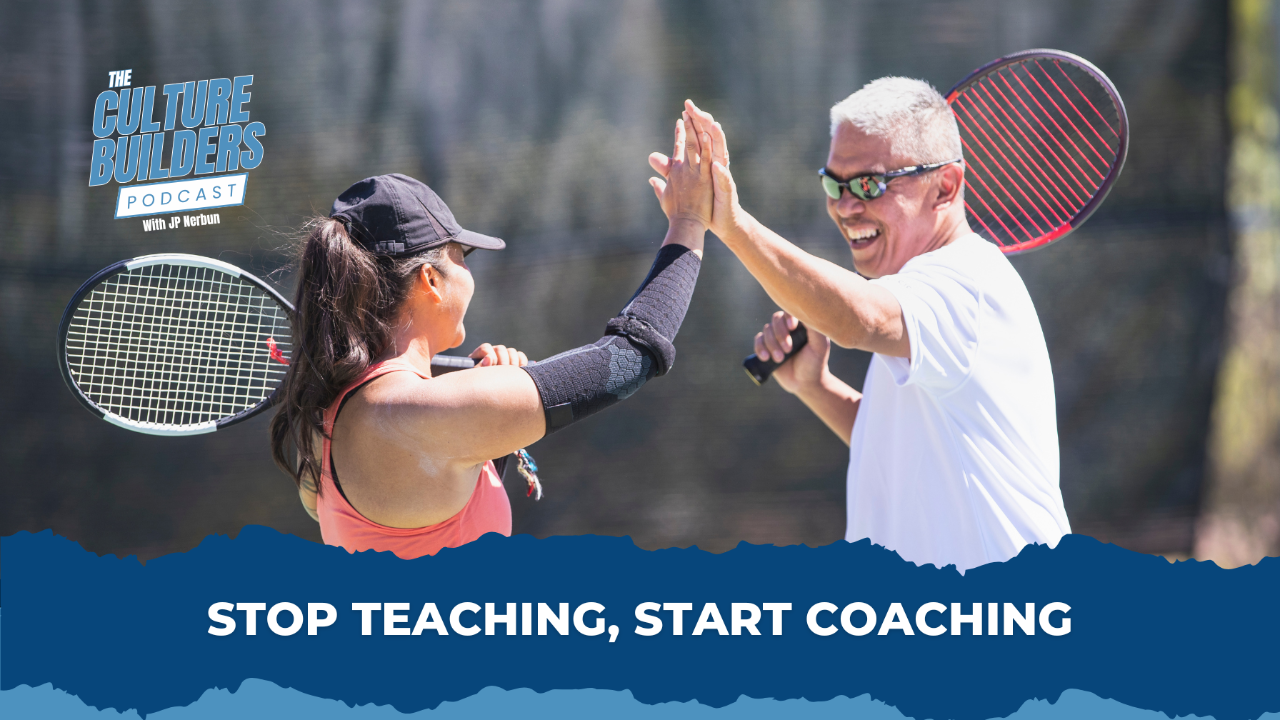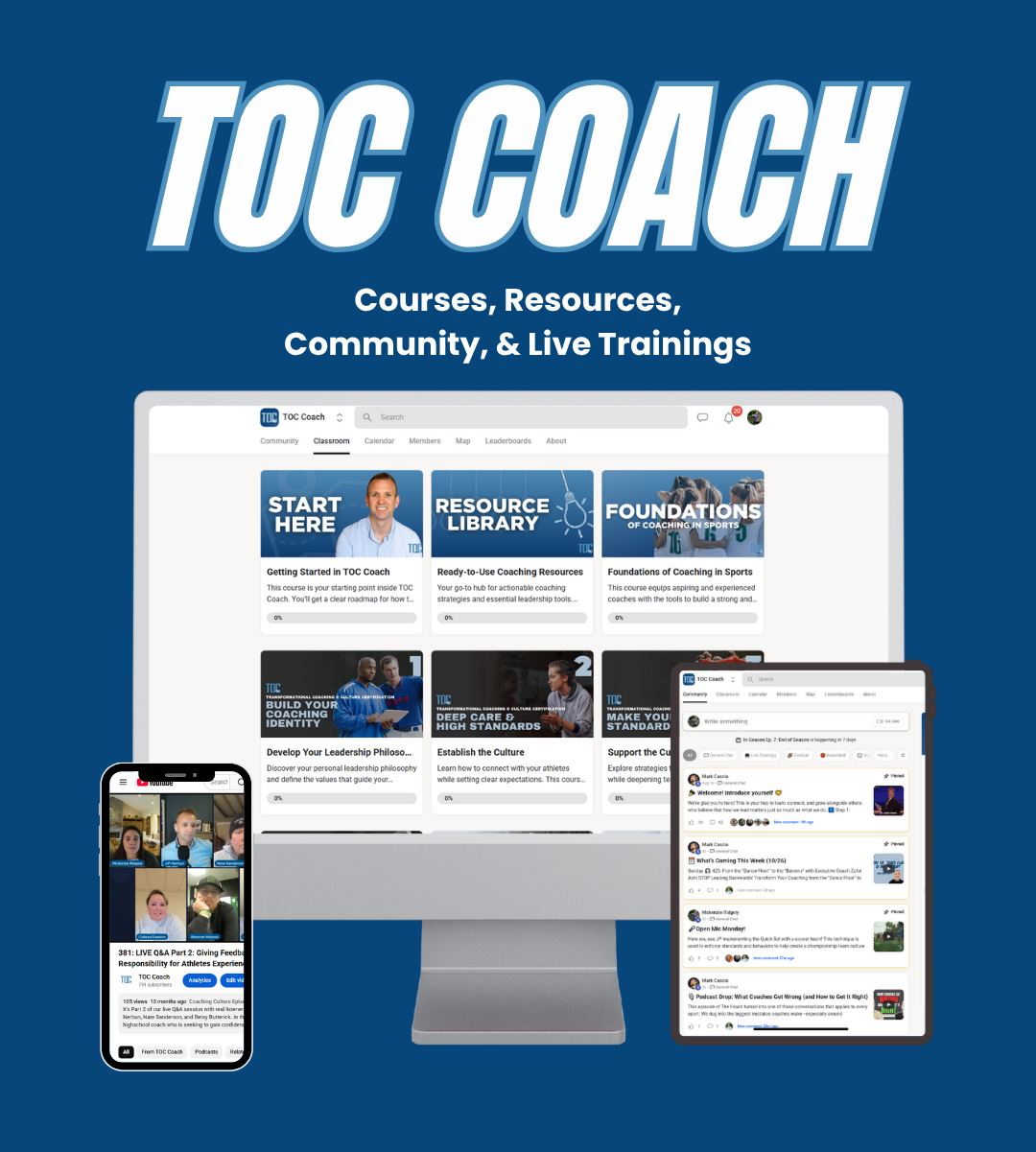Stop Teaching, Start Coaching

Tim Gallwey was a tennis pro. One afternoon, he got tired of his job teaching tennis. The endless instructions felt like noise: foot placement, swing mechanics. He just couldn't anymore. So, he stopped talking.
Meanwhile, his student's backhand was a mess. Gallwey just fed balls. Silence filled the court. Four minutes passed. Then, suddenly, topspin appeared out of nowhere.
Gallwey was floored by this. The usual model was clear: tell the student what to fix. The student learns, corrects, thanks, and pays. Learn, thank, pay. That was the expectation. But this student started learning before Gallwey taught him.
A realization hit Gallwey. He had focused too much on teaching and not enough on the student learning.
A new question arose: How do you actually facilitate learning in another person?
He ran an experiment. How little could he say? His next student was a beginner. Fundamentals were ignored. Gallwey hit a few balls and let her watch. Then he told her: "Close your eyes. See yourself hitting."
She visualized briefly. Then she hit a few balls.
Boom. She nailed it, mirroring what he had just done.
Everything changed for Gallwey that day. He stopped telling people what to do and started doing two things: asking questions to boost their self-awareness and giving awareness instructions, like “focus on where the ball hits the racket.” When he did this, something remarkable happened: the student, focusing on the contact point, would suddenly start hitting clusters near the center.
No criticism was offered, barely any praise was given. A lot of quiet filled the lessons.
Teaching died. Coaching was born.
People at his tennis club loved it. "Write a book," they said. So he wrote The Inner Game of Tennis. The publisher hoped for 20,000 sales; it sold millions instead.
The reason? It wasn’t really about tennis but about human performance in general.
Across the pond, English businessman and racer John Whitmore read it. He was fascinated and flew halfway around the world to learn from Gallwey. Whitmore saw the bigger picture: this wasn't just for the tennis court.
Whitmore took those coaching principles and applied them to the business world. His goal was to unlock human potential in organizations. Gallwey showed what coaching was—unlocking inner obstacles. Whitmore figured out how to do it, developing structured conversations and models that gave people ownership.
Both Gallwey and Whitmore are now considered founders of leadership coaching, a $20 billion industry projected to reach $30 billion in the next few years.
Whitmore would go on to found Performance Consultants. He also wrote Coaching for Performance, now in its 6th Edition. Tiffany Gaskell, CEO of Performance Consultants and author of the latest edition, recently discussed coaching as a leadership style on the Coaching Culture Podcast, emphasizing that coaching is not just a profession or industry.
Both Gallwey and Whitmore understood this: real coaching isn't telling; it's making people aware. They become observers of their own stuff, including emotions, stories, and decisions.
Gallwey's definition of coaching: "Simply helping people pay attention to their own experience in ways that foster their growth and development and move towards their goals.”
Whitmore once defined coaching this way: “There’s ultimately only one question in coaching—‘Who are you?’ I think that is what we are trying to help people to do. […] Helping the person to find who they are underneath the conditioning, the social obligations, and their own anxieties and defense mechanisms—to move beyond that stuff to find out who you really are.”
Coaches hold space for others, ask the tough questions, and encourage people to think and get a clearer picture, both in their head and heart.
So, wherever you are a leader: Stop teaching and telling. Start coaching.
Better conversations help people get to what really matters.
Who are you? And how do you become the best you?
References
The Coaching Culture Podcast. (n.d.). Episode with Tiffany Gaskell.



